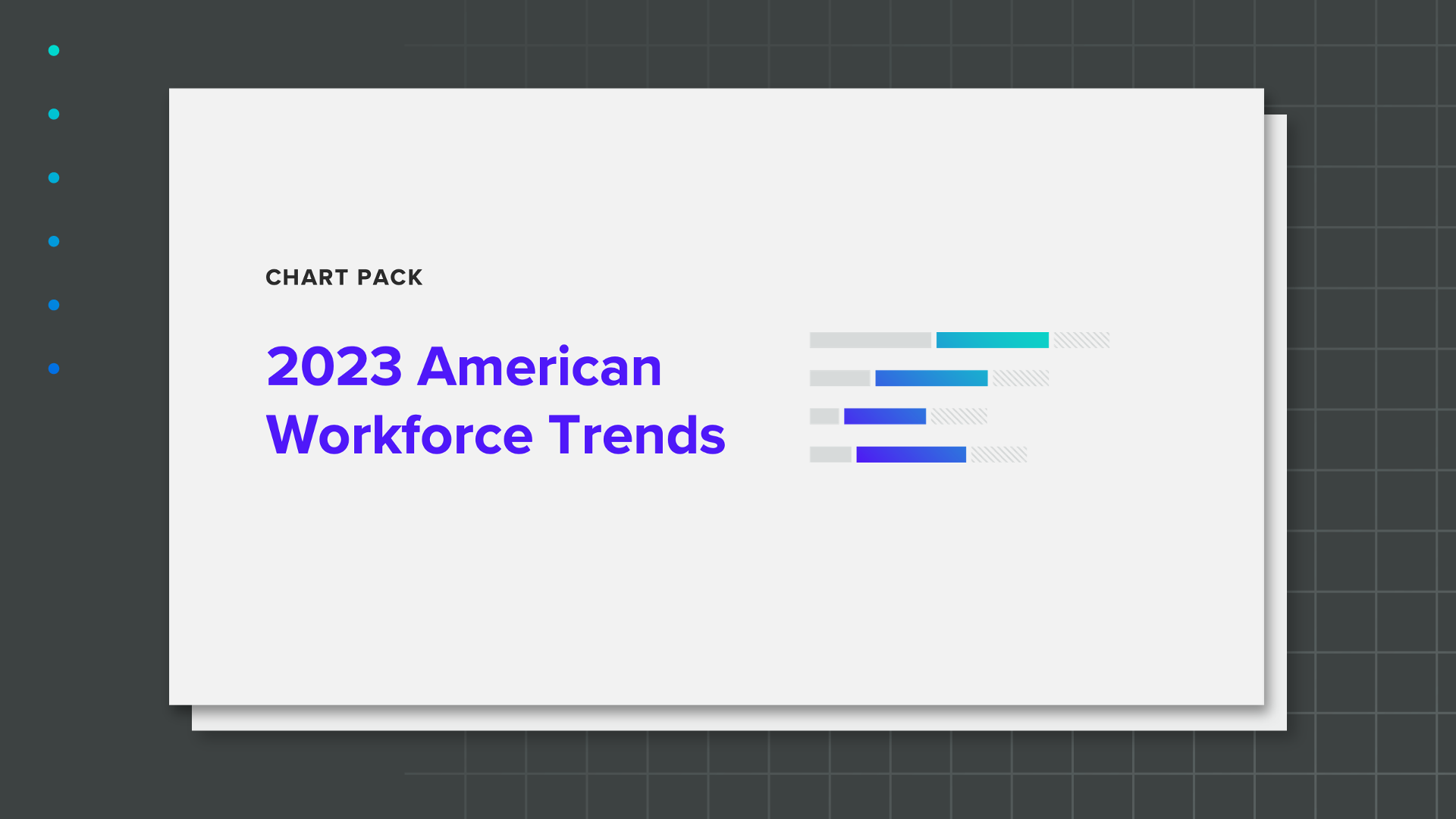U.S. Enthusiasm for 4-Day Workweek Dips Without Remote Work Option

Key Takeaways
American workers are extremely optimistic about the practice: 87% of employed U.S. adults said they would be very or somewhat interested in a four-day workweek, and a nearly equal share (82%) said they think the widespread adoption of it in the United States would be successful.
However, remote work policies may impact the four-day workweek’s appeal. While 75% of employed U.S. adults reported being interested in the truncated approach if remote work was allowed “all or nearly all of the time,” this figure dropped to 51% when respondents were presented with the option of “no remote work at all.”
More broadly, employed U.S. adults are showing signs of interest in lower impact lifestyles. The survey also asked whether American companies should adopt certain work norms seen in Europe, and large majorities of employed U.S. adults responded in favor of every tested policy — though support was strongest for extended vacation periods and lunch breaks.
For the latest global brand, media and marketing news and analysis, sign up for our daily brands news briefing.
The four-day workweek is quickly becoming the latest nontraditional approach for employers to assess for their workforce.
Results from the largest-ever trial of the shortened schedule in the United Kingdom garnered buzz earlier this year when 56 of the 61 involved organizations announced they would not return to a standard five-day week after observing improvements in turnover, employee satisfaction and revenue. Another recent experiment involving dozens of companies across North America and Europe found that employees did their assigned work much more efficiently in the shortened time frame.
Now, a new Morning Consult study highlights American workers’ optimism about the practice’s stateside potential: 87% of employed U.S. adults said they would be very or somewhat interested in a four-day workweek, and a nearly equal share (82%) said they think the widespread adoption of it in the United States would be successful.
The research also found that remote work policies may impact the four-day workweek’s appeal. While 75% of employed U.S. adults reported being interested in the truncated approach if remote work was allowed “all or nearly all of the time,” this figure dropped to 51% when respondents were presented with the option of “no remote work at all.”
American Workers Believe a 4-Day Workweek Would Be Successful
Millennials are most enthusiastic about shortening the workweek
Nearly all millennials (93%) reported interest in a four-day workweek, with two-thirds saying they would be “very interested,” while 85% also said they believe its adoption would be successful. These represent the highest figures among all generations on both accounts.
Data from Morning Consult’s State of Workers 2023 report found that approximately 4 in 5 millennials (79%) said they always, often or sometimes feel too tired after work to enjoy the things they would like to do in their personal lives. As a result, members of the cohort — many of whom are at or near the peak of their careers — place a premium on flexibility in the workplace. More than a third (37%) rated having a “good work-life balance” as a top priority in a job, and a similar amount (34%) said the same of having “flexible hours or work schedules.”
Baby boomers, in contrast, were the generation least interested in (71%) and confident about the work schedule’s success (74%). Still, no demographic group reported interest and confidence levels below 70%, again pointing to the practice’s widespread popularity.
However, removing the ability to work remotely dulls the allure of working fewer days per week.
Restrictions on Remote Work Hampers Interest in 4-Day Workweek
Is remote work more compelling than a four-day workweek?
Employed U.S. adults’ stated interest in a four-day workweek declined when presented with hypothetical restrictions on the number of days per week they could work remotely, with the drop-off in interest being most severe (-17 percentage points) between having the ability to work remotely one to two days per week and not having the option at all.
Less than half of Gen Z adults (47%), Gen Xers (49%) and baby boomers (42%) said they would be interested in the shortened schedule if their employer never allowed remote work. Millennials’ interest levels also decreased all tested remote work policies, but remained the highest of any generation.
The data highlights remote work’s staying power as a meaningful employer benefit. Our State of Workers 2023 report also found that over half of employed U.S. adults still prefer working remotely in some capacity, whether full-time or hybrid. The top-cited reasons for those who do not prefer to work in-person were hesitations over commutes, an unideal work-life balance and feeling uncomfortable working in an office, per the survey. Most of these concerns would not be resolved with a four-day workweek alone. Thus, employers should expect remote work to remain an important bargaining chip in employee negotiations.
Other perks with potential
Our four-day workweek survey also asked whether American companies should adopt certain work norms seen in Europe. Large majorities of employed U.S. adults responded in favor of every tested policy, though support was strongest for extended vacation periods and lunch breaks.
European Work Norms Broadly Appeal to U.S. Employees
There seems to be growing demand, especially among young people, for low-impact lifestyles. TikTok videos about “lazy girl jobs” — described by users as gigs that can be done mostly from home, have flexible schedules that allow for midday dog walks or errands and require no overtime while still offering a liveable salary — have generated millions of views. Similar trends like #BareMinimumMondays or #ActYourWage, encouraging users to do the least work required to perform their jobs adequately, have gone viral.
Specific demographics at scale: Surveying thousands of consumers around the world every day powers our ability to examine and analyze perceptions and habits of more specific demographics at scale, like those featured here.
Why it matters: Leaders need a better understanding of their audiences when making key decisions. Our comprehensive approach to understanding audience profiles complements the “who” of demographics and the “what” of behavioral data with critical insights and analysis on the “why.”
While such behavior may seem silly or fleeting, content of this ilk has been around for years. And with that many eyeballs paying attention, it’s likely having some influence on work expectations.
Fo(ur) for thought
A handful of U.S. companies have already adopted the four-day workweek. In recent months, legislation to shorten the legal workweek has also been introduced in New York, California and the U.S. Congress.
While not imperative for employee attraction and retention, implementing four-day workweeks or similar sensitive-of-personal-time initiatives can be a meaningful way to show employees that their work-life balance matters. Companies that do so sooner rather than later will likely enjoy happier employees, along with the benefit of earning goodwill among a public hungry for these moves from corporate America.
Ellyn Briggs is a brands analyst on the Industry Intelligence team, where she conducts research, authors analyst notes and advises brand and marketing leaders on how to apply insights to make better business decisions. Prior to joining Morning Consult, Ellyn worked as a market researcher and brand strategist in both agency and in-house settings. She graduated from American University with a bachelor’s degree in finance. For speaking opportunities and booking requests, please email [email protected].


